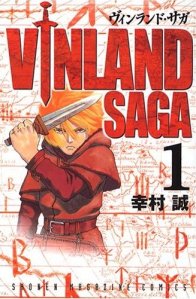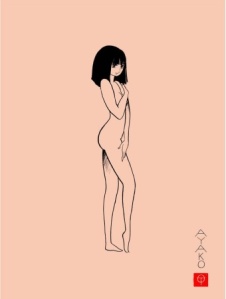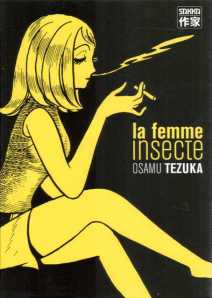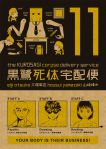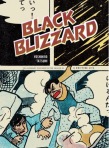“V” is for… well, not very much, when you make a conscious choice to ignore “Vampire” and “Virgin,” but that’s just how I roll.
Vagabond (Viz), written and illustrated by Takehiko Inoue. This is one of those Japanese comics that’s highly regarded both by manga devotees and by comics omnivores, though I think that’s generally true of all of Inoue’s work. Vagabond, which is still running in Kodansha’s Morning, though I believe it’s on hiautus, tells the tale of the “quintessential warrior-philosopher.”
Mizu Sahara adapted a one-volume manga of Makoto Shinkai’s animated film, The Voices of a Distant Star. The manga was originally published in Kodansha’s Afternoon, and it was later published in English by Tokyopop.
Lots of people would love for someone to publish Makoto (Planetes) Yukimura’s Vinland Saga, myself included. This sprawling tale of Vikings is still running in Kodansha’s Afternoon.
“V” is also for Viz, obviously, still barreling along as North America’s major manga publisher. It’s jointly owned by Shogakukan and Shueisha, and Viz makes a great deal of seinen manga available for free online in the form of its SigIKKI initiative.
And nobody should ever overlook Vertical, which initially made its manga name by focusing on classic works by Osamu Tezuka and Keiko Takemiya, but has recently begun publishing more contemporary (but still excellent) works, in addition to its prose fiction and non-fiction catalog.
Update:
On Twitter, Scott Green reminded me of Voyeurs, Inc. (Viz), written and illustrated by Hideo Yamamoto. It follows the misadventures of a group of surveillance experts. It originally ran in Shogakukan’s Young Sunday.


